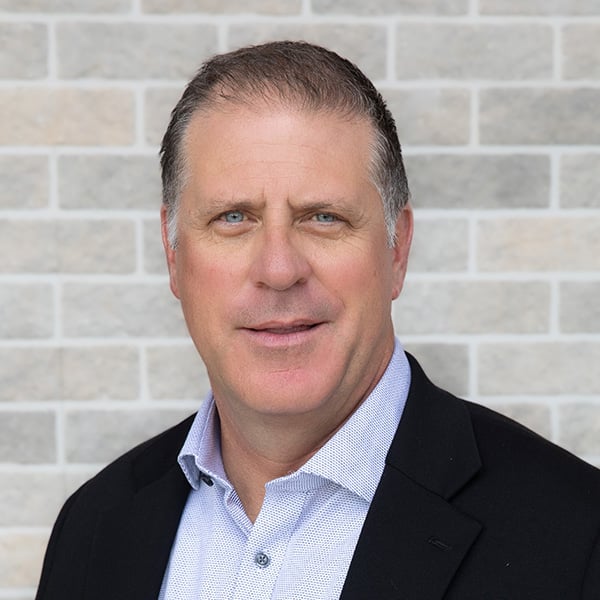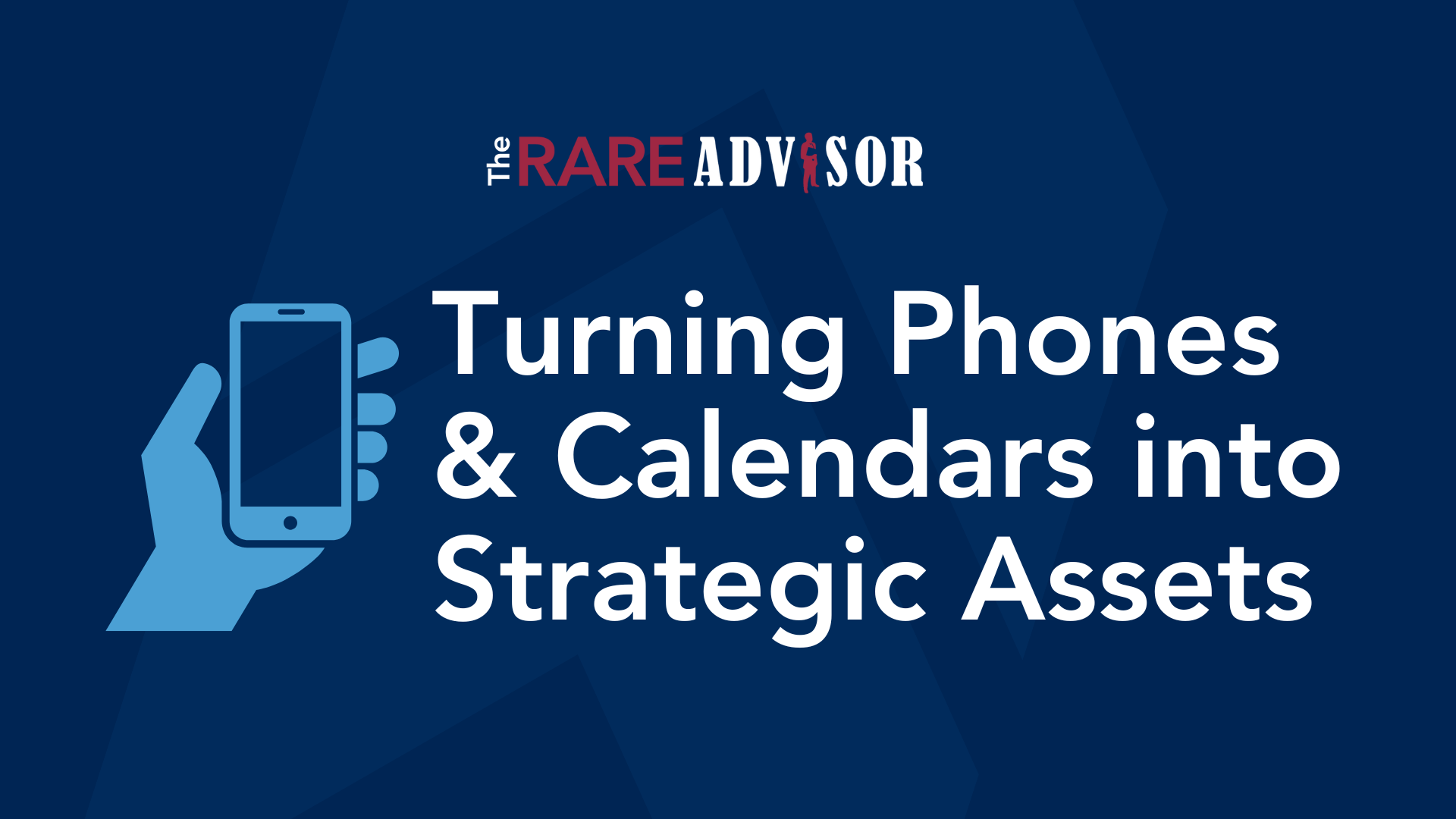How Financial Advisors Get Left Behind (Hint: It’s Only by Choice)

Remember the old saying, “change is the only constant”? It’s never been truer in today’s fast evolving world. Take a moment and think about your practice five or ten years ago. Does it look anything like today’s version? Chances are, it’s transformed. Is it dramatically different?
Many in our industry started out as agents in the insurance/annuity business or as registered reps in the securities business. Gone are the days when advisors could rely solely on insurance products or commission-based sales. Today’s successful advisors have become focused on assets under management with an emphasis on client experience while they build out the wealth management side of their practice.
Consider the transformation in portfolio management. Advisors aren’t relying on intuition and traditional investment strategies anymore. Many advisors embrace the scalability of using third-party asset managers and TAMP programs like USA Financial Exchange. As technology has grown and more data has become available, many advisors are seeking out data-driven solutions help them make personalized recommendations for their clients. More financial advisors are choosing to outsource investment management through TAMP platforms. Indirectly, this has solved two crucial problems for advisors…
- Asset gathering (not asset managing) is the revenue lifeblood of a retail practice. The more time an advisor spends managing money, the less time they spend growing the practice and attracting new assets. Therefore, profits often go up in direct proportion to reduction in directly managing assets.
- Rep as PM and/or advisor managed portfolios can stifle the value of an advisor’s practice. They choke out scalability, which can crush the valuation of a practice (no buyer wants to buy “a job,” they want to buy “a business,” and it’s impossible to climb inside the head of the advisor managing the money), but the advisor focused on gathering assets can turn over their systems and processes along with the scalability of third-part asset management - therefore, increasing the valuation of the practice.
Adaptation isn't just a strategy—it's a mindset. You can choose to evolve or watch your practice slowly fade. The financial world won't wait, and neither should you. The exciting part? You’re in control and you get to choose… Adapt and grow rather than decay and decline.
We can learn from past industry disruption.
Remember Sears? Once a retail giant, now a cautionary tale of what happens when businesses refuse to adapt. Or what about Blockbuster? They were a once-dominant video rental chain that failed to adapt to the rise of streaming services like Netflix. These stores became ghost towns while competitors like Amazon reimagined retail and Netflix reimagined video rental through online streaming. Financial advisory practices face a similar crossroads.
Advisors who cling to outdated models—think purely commission-based approaches or manual record-keeping—risk becoming obsolete.
The marketplace rewards agility and innovation. Adaptability is crucial.
So how do you stay ahead?
How do you future-proof your advisory practice? Here are six game-changing strategies:
- Enhance your value proposition. Offer comprehensive financial planning that goes beyond traditional investment management.
- Cultivate high-value relationships. Focus on your top 20% of clients. These relationships aren't just revenue generators—they're your best referral sources and brand ambassadors.
- Embrace technology. Automate routine tasks. Use cutting-edge tools that streamline operations and elevate client experience. Your team's time is your most valuable asset.
- Stay trend-aware and monitor industry shifts. The most successful advisors are part futurist, anticipating market changes before they happen.
- Deliver an elite experience. Clients don't just want returns—they want a premium, personalized journey. Your practice should feel more like a boutique concierge service than a transactional encounter.
- Develop strategic partnerships. Align with institutions and platforms that accelerate your growth and expand your capabilities.
Author Info

Mike Walters is the Chief Executive Officer (CEO) of USA Financial, leading the firm since its inception in 1988. Mike is committed to...
Related Posts

Access by Design: Turning Phones and Calendars into Strategic Assets
In this episode of The RARE Advisor, host Aaron Grady and practice management consultant Allan Oehrlein continue their discussion on time allocation by exploring what comes next: operationalizing structure across the entire advisory team. They break down why the phone is the “front door” to the firm and the calendar is the “engine room,” and how elite practices use standardized phone scripts, the strategic power of the word “unavailable,” intentional scheduling rules, and team empowerment to build consistency, capacity, and trust. Aaron and Allan outline how designed access—not unlimited access—creates scalability and a stronger client experience, while reducing reactivity, burnout, and advisor bottlenecks. They also offer practical challenges advisors can implement immediately to redesign their phone and scheduling processes in ways that elevate both team culture and enterprise value.

The Psychology Behind Your CTA: Why Prospects Don’t Click “Book a Call”
In this episode of Financial Advisor Marketing Playbook, Mark Mersman breaks down the real psychological barriers that stop prospects from clicking “book a call” on an advisor’s website—and how small language and design changes can dramatically improve conversions. You’ll learn practical, compliant fixes including softer CTA language, expectation statements, empathy‑based messaging, simplified design, and reassurance techniques that lower emotional friction. If you want a website that encourages prospects to take the first step confidently, this episode delivers actionable guidance advisors can implement immediately.

How Advisors Can Get 10 Hours Back Every Week
In this episode of The RARE Advisor, host Aaron Grady and USA Financial Pareto coach and Practice Management Consultant Allan Oehrlein dive into time allocation as a core lever for advisory success. They unpack the biggest time drains—email, unsolicited calls, and open-door interruptions—and lay out a practical framework for calendar rebalancing that starts with personal time, management time, client appointments, dedicated communications windows, “work on the business” time, and high-impact growth activities. With real-world stories showing how advisors shift from reactive days to structured weeks (and even reclaim Fridays), Aaron and Allan share easy-to-implement tips: color coding calendars, scheduling buffers, daily huddles, and call/appointment protocols. If you’re ready to audit your calendar, define your ideal week, and create structure that truly liberates your practice, this conversation is your next step.

Access by Design: Turning Phones and Calendars into Strategic Assets
In this episode of The RARE Advisor, host Aaron Grady and practice management consultant Allan Oehrlein continue their discussion on time allocation by exploring what comes next: operationalizing structure across the entire advisory team. They break down why the phone is the “front door” to the firm and the calendar is the “engine room,” and how elite practices use standardized phone scripts, the strategic power of the word “unavailable,” intentional scheduling rules, and team empowerment to build consistency, capacity, and trust. Aaron and Allan outline how designed access—not unlimited access—creates scalability and a stronger client experience, while reducing reactivity, burnout, and advisor bottlenecks. They also offer practical challenges advisors can implement immediately to redesign their phone and scheduling processes in ways that elevate both team culture and enterprise value.

The Psychology Behind Your CTA: Why Prospects Don’t Click “Book a Call”
In this episode of Financial Advisor Marketing Playbook, Mark Mersman breaks down the real psychological barriers that stop prospects from clicking “book a call” on an advisor’s website—and how small language and design changes can dramatically improve conversions. You’ll learn practical, compliant fixes including softer CTA language, expectation statements, empathy‑based messaging, simplified design, and reassurance techniques that lower emotional friction. If you want a website that encourages prospects to take the first step confidently, this episode delivers actionable guidance advisors can implement immediately.

How Advisors Can Get 10 Hours Back Every Week
In this episode of The RARE Advisor, host Aaron Grady and USA Financial Pareto coach and Practice Management Consultant Allan Oehrlein dive into time allocation as a core lever for advisory success. They unpack the biggest time drains—email, unsolicited calls, and open-door interruptions—and lay out a practical framework for calendar rebalancing that starts with personal time, management time, client appointments, dedicated communications windows, “work on the business” time, and high-impact growth activities. With real-world stories showing how advisors shift from reactive days to structured weeks (and even reclaim Fridays), Aaron and Allan share easy-to-implement tips: color coding calendars, scheduling buffers, daily huddles, and call/appointment protocols. If you’re ready to audit your calendar, define your ideal week, and create structure that truly liberates your practice, this conversation is your next step.

